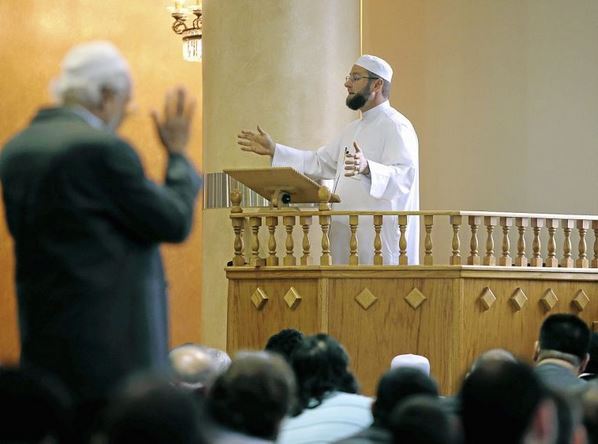
RNA - Lamiaa Ali was the only identifiable Muslim in Pryor on 9/11.
“I was the only one who was wearing the scarf in the entire city,” said Ali, referring to the religious head covering that Muslim women wear.
And that meant, in a town that at the time had fewer than 9,000 people, she was a little afraid to venture out of the house after it was apparent that people who shared her faith were responsible for the attacks.
As it turns out, aside from some ugly stares by strangers at the grocery store and on the street, Ali and her family didn’t deal with much backlash personally.
“Since my husband was the only internist in Pryor, lots of people knew him, and we really had lots of support,” Ali said. Ali and her husband, both physicians, moved to the United States from Egypt when her husband was accepted into a residency program.
The consequences of 9/11 encouraged Muslims to share their faith and build bridges in their communities, and many Americans were receptive, Ali said.
But as time went on, the anti-Muslim sentiment has seemed to get stronger, rather than fade.
Muslims across the country, and especially in Oklahoma, have become concerned in recent months that the increase in hateful rhetoric can lead to violence against them. Islamophobia, a term that’s been used in recent years with the rise of anti-Muslim rhetoric, is on the rise.
This fall state Rep. John Bennett, R-Sallisaw, has been making anti-Muslim statements, including that Islam is “a cancer” that “needs to be cut out” of the U.S.
Ali — who now lives in Tulsa and is a pediatrician for OU Physicians and an assistant professor of pediatrics at the university’s medical school — said she worries about her kids’ futures.
“I’m afraid that they’re going to continue to be labeled and just be put on the spot just because of their name or their religious affiliation,” she said.
Recently, one of Ali’s two teenage sons was called a terrorist by a fellow Boy Scout member.
“It kind of breaks your heart,” she said.
Ahmed Abdelmonem, a junior at the University of Tulsa who grew up in Oklahoma, hopes things will change.
“My hope is that everyone sees Muslims just as they see anyone else,” he said. “That we’re all human beings, we all have the same values, the same concerns, the same fears. We all want the same thing. And we all want peace.”
R111/108/C/